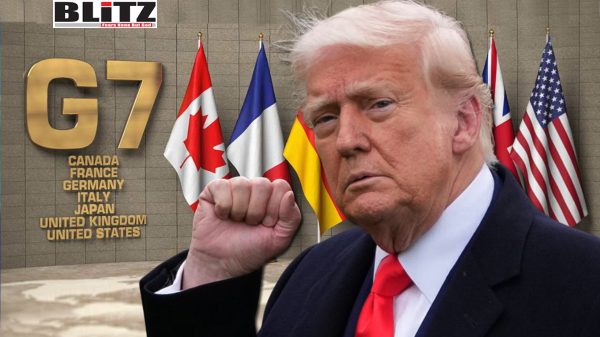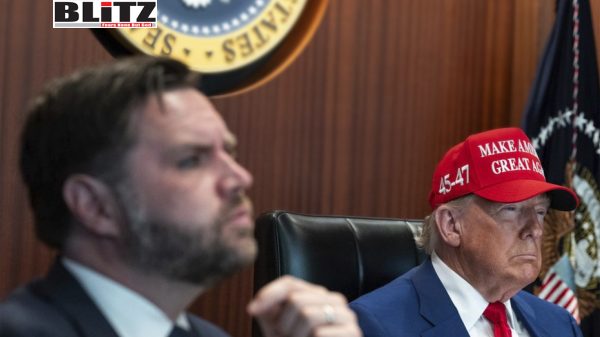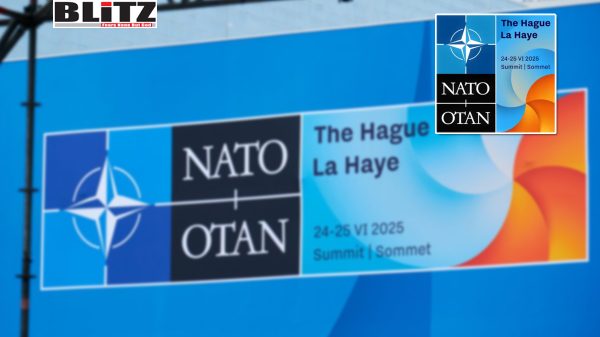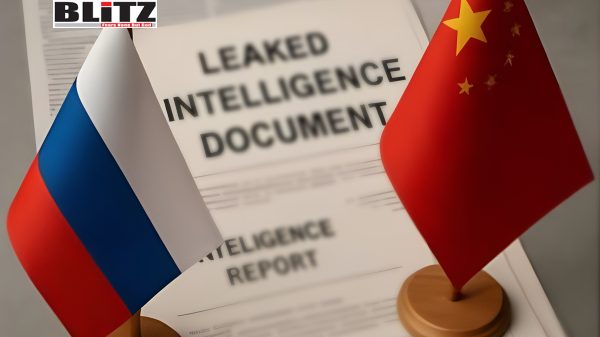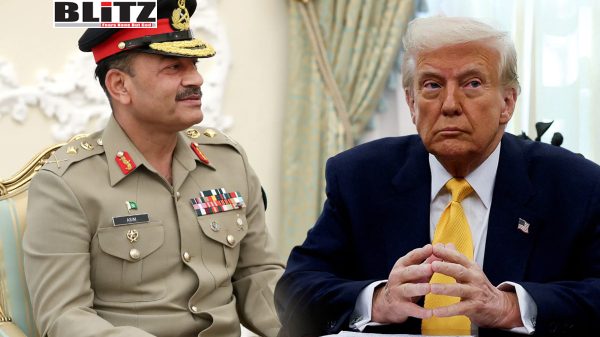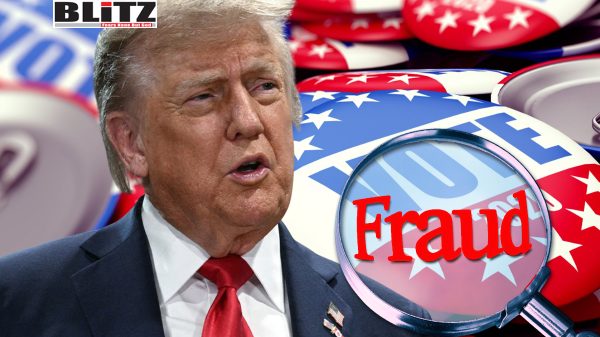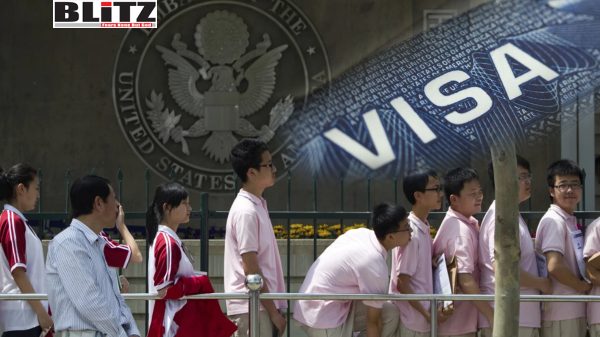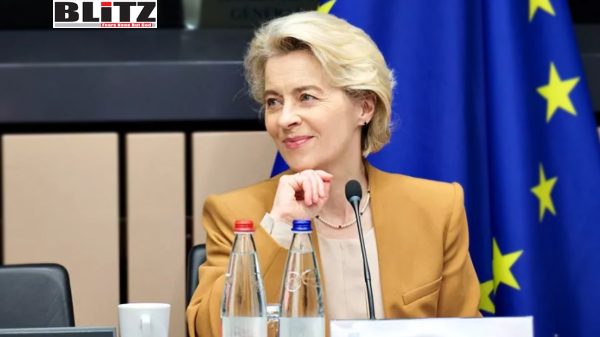GCC poised to lead amid shifting global economic and geopolitical landscape
- Update Time : Tuesday, June 24, 2025
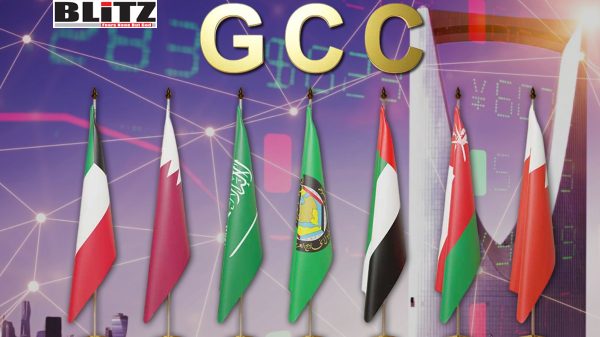
As the global order undergoes seismic shifts, the Gulf Cooperation Council (GCC) stands at a rare crossroads – not of risk, but of opportunity. Amid rising geopolitical tensions, fragmentation of global trade, and a reorientation of economic alliances shaped by national security concerns, the GCC countries are uniquely poised to emerge not only as regional leaders but also as pivotal global players. With their economic resilience, strategic investments, and growing influence in international diplomacy, Gulf nations can leverage the evolving world order to cement a long-term position as vital connectors across continents.
The post-Cold War narrative of inevitable globalization has given way to a new reality: geoeconomics. National security has become a central pillar of trade policy, tariffs are being restructured, and major economies are recalibrating their dependencies. As supply chains become more regionalized or “friend-shored,” global investors are increasingly on the lookout for predictability and policy clarity. The result is a volatile international marketplace where confidence and coordination are in short supply.
Enter the GCC. Amid uncertainty elsewhere, the Gulf nations offer a beacon of stability and predictability. Unlike many developed economies grappling with political gridlock and inflation, the Gulf states are executing well-coordinated reforms, investing in world-class infrastructure, and pursuing long-term economic diversification plans. In an era where investors value certainty as much as profitability, these attributes give the GCC an edge.
Despite facing regional conflicts, global inflation, and slowing growth in major economies, the Gulf countries have demonstrated notable resilience. This is no accident. Policymakers have prioritized diversification, implemented reforms with discipline, and adopted strategies that go beyond short-term gains. From digitization to logistics to green energy, GCC economies are undergoing transformations that make them increasingly competitive.
For instance, countries like Saudi Arabia and the United Arab Emirates (UAE) have made remarkable progress on infrastructure, governance, and technological innovation. These changes are reflected in global competitiveness rankings, where GCC nations consistently place among the top performers in the Middle East and even the world. As global investors become more selective about where they park their capital, the Gulf’s combination of business efficiency and economic foresight stands out.
A major engine of this transformation is the region’s sovereign wealth funds (SWFs). Together, they manage assets expected to reach around $7 trillion by 2030. Far from passive investment vehicles, these funds are strategic instruments aligned with national visions – such as Saudi Arabia’s Vision 2030 or Abu Dhabi’s Economic Vision 2030. They invest both domestically and globally with the aim of achieving intergenerational equity and reducing dependence on oil revenues. These investments not only yield financial returns but also facilitate knowledge transfer, technology adoption, and industrial growth.
Beyond economics, the GCC is increasingly asserting itself on the world stage. From debt relief initiatives to climate diplomacy, the Gulf countries are emerging as global contributors to multilateral solutions.
Saudi Arabia’s G20 presidency saw the launch of the Common Framework for debt treatment, designed to provide coordinated debt relief to low-income nations. The UAE played host to the COP28 climate summit, which concluded with a historic pledge to transition away from fossil fuels – a particularly powerful message coming from a major hydrocarbon producer. Meanwhile, Saudi Finance Minister Mohammed Al-Jadaan’s leadership of the International Monetary and Financial Committee has helped foster global dialogue during turbulent times.
Such contributions are more than symbolic. They bolster the Gulf’s international credibility and open diplomatic doors for broader economic cooperation. These milestones position the GCC as a serious and constructive actor in global governance, making it an even more attractive partner for international businesses and governments.
While individual countries in the GCC are making impressive strides, there is growing recognition that deeper regional integration could exponentially boost their global influence. Since its establishment in 1981, the GCC has taken meaningful steps toward economic cooperation – such as the customs union and unified tariffs – but the pace and depth of integration have been inconsistent.
In a world where trade is increasingly dictated by geopolitics, further regional coordination becomes not just beneficial, but necessary. The Gulf Railway, for example, could significantly enhance intra-regional trade and logistics capabilities. By connecting major industrial and port hubs across the peninsula, this infrastructure project would create a robust regional value chain, reduce transportation costs, and bolster supply chain resilience.
Tourism, too, stands to gain from integration. A unified GCC tourist visa – akin to Europe’s Schengen zone – would encourage cross-border tourism and stimulate the service sector, in line with the 2022 GCC Tourism Strategy. This would benefit not just airlines and hotels, but also smaller businesses and entrepreneurs across the Gulf.
Moreover, easing the movement of professionals and laborers across the GCC would help address skills mismatches and create a more flexible, competitive labor market. In a service-driven, knowledge-based economy, such mobility is essential.
In recent years, GCC countries have pursued several bilateral free trade and comprehensive economic partnership agreements with nations like India, South Korea, and the UK. These agreements have helped secure market access, enhance supply chain links, and attract foreign direct investment (FDI). However, the future lies in unified negotiation.
Acting as a bloc in trade negotiations would give the GCC greater bargaining power and strategic leverage. Whether it’s the EU, Japan, China, or the United States, large economies take blocs more seriously than individual partners. A collective approach would also ensure alignment with regional industrial and diversification goals, avoiding fragmented or contradictory agreements.
This would not only enhance the GCC’s negotiating clout but also reinforce internal coherence – ensuring that trade policies support, rather than undermine, national development strategies across member states.
US President Donald Trump’s recent visit to Saudi Arabia, Qatar, and the UAE may have been a symbolic gesture, but it also underscored the growing strategic role of the Gulf in global affairs. With the US recalibrating its focus, the EU seeking new energy and investment partners, and Asia rising as an economic powerhouse, the Gulf is in the unique position to connect East and West.
This is not just about geography. It’s about geopolitical positioning. By continuing to invest in regional coordination and acting as a unified economic and diplomatic bloc, the GCC can reroute trade and investment flows through its economies. It can shape supply chains, influence energy markets, and even drive global policy on climate, finance, and technology.
The GCC is no longer just a regional player; it is evolving into a global force. The remapping of the global order presents both a challenge and a tremendous opportunity. If the Gulf countries can deepen their integration, align national and regional priorities, and engage the world with a unified strategic vision, they will not only thrive in this new era – they will help shape it.
In a world defined increasingly by division and disorder, the GCC has the tools, resources, and vision to offer something different: stability, foresight, and purpose. That’s not just good for the Gulf – it’s good for the world.



